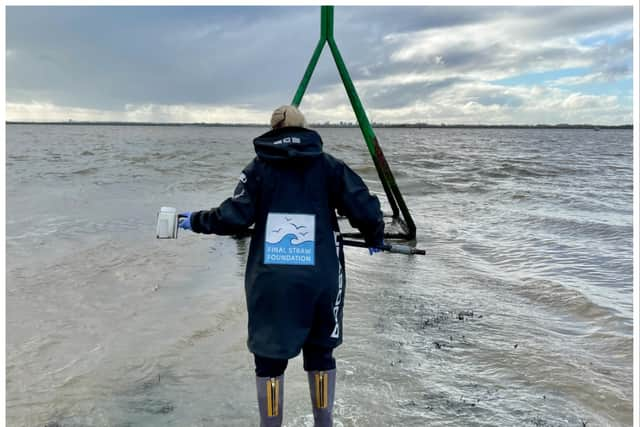Drugs, pesticides and medicine found in seawater and marine life off south coast of England
and live on Freeview channel 276
Drugs, pesticides and medicine have been found in seawater samples collected off the coasts of Hampshire and West Sussex.
The samples were collected last year from Langstone and Chichester harbours by the Clean Harbours Partnership (CHP), a local campaign group launched by residents concerned about pollution.
Advertisement
Hide AdAdvertisement
Hide AdThe group raised money for the professional testing in which researchers from the University of Portsmouth and Brunel University London analysed nearly 300 samples.
They found more than 50 different chemical compounds across 22 sites, including commonly prescribed medicines to treat conditions such as type 2 diabetes and high blood pressure.
The researchers also discovered nicotine and benzoylecgonine, which is produced by the liver after cocaine use, as well as pesticides including simazine, propamocarb, imidacloprid, and clothianidin - a banned substance in the UK.


Professor Alex Ford, from the University of Portsmouth’s School of Biological Sciences, said the team had found a “large variety of prescribed and illegal drugs plus a variety of pesticides in coastal waters and marine organisms, such as crabs and oysters.”
Advertisement
Hide AdAdvertisement
Hide AdNick Mole, Policy Officer at Pesticide Action Network UK, told NationalWorld that pesticides can have “a devastating impact on biodiversity” and “this is yet more evidence that things need to change.”
Mr Ford added that the research “is enabling us to determine what chemical contaminants are in our marine life and coastal waters.”
He told the BBC that this has got to be taken “seriously” because chemicals which were banned 30 years ago are still harming wildlife now.
Francesca Ginley, Chemicals Policy & Advocacy Manager at the Marine Conservation Society, said better protections need to be put in place by the government "to prevent avoidable uses of persistent chemicals" and “effective legislation to ensure water companies treat all wastewater before it enters the environment.”
Advertisement
Hide AdAdvertisement
Hide AdPrevious research by Mr Ford revealed that drugs affect the behaviour of crustaceans and molluscs including changing their colour, growth and whether they reproduce less or more.
He found that tiny quantities of antidepressants in water can “disrupt the normal biological systems” of these species.
He said: “There is a staggering list of prescription drugs passed from humans to wastewater treatment plants and into oceans by direct consumption, metabolism, and excretion or by toilet flushing of old prescriptions.”
“The release of human pharmaceuticals into aquatic ecosystems is an environmental problem we should consider seriously.”
Advertisement
Hide AdAdvertisement
Hide AdIt comes after an investigation carried out by ITV News and Watershed Investigations found shellfish harvested in the UK show worrying levels of E. coli - far above what is deemed safe to eat without treatment.
The research found some shellfish areas have seven times the acceptable level of the bacteria which is often linked to raw sewage.
Comment Guidelines
National World encourages reader discussion on our stories. User feedback, insights and back-and-forth exchanges add a rich layer of context to reporting. Please review our Community Guidelines before commenting.
